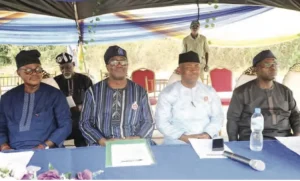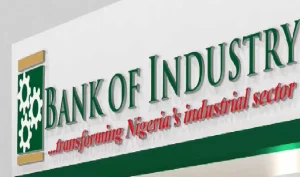
Lagos, the bustling economic hub of Nigeria, will be the venue for a momentous occasion today as global oil and gas industry leaders gather from around the world to witness the inauguration of Africa’s richest man, Alhaji Aliko Dangote’s monumental achievement: the world’s largest single-train refinery. This refinery, with a daily capacity of 650,000 barrels, is expected to reshape the global energy landscape and bring an end to the illicit smuggling of imported petrol out of Nigeria, which accounts for 80% of fuel consumed in Africa. President Muhammadu Buhari, along with seven African presidents, will officiate the inauguration, marking a significant milestone for the petroleum sector in Nigeria.
Notable attendees at the historic event include presidents from Togo, Ghana, Senegal, Niger Republic, and Chad. President Paul Kagame of Rwanda will deliver his goodwill message virtually. State governors, ministers, senators, and industry leaders from Nigeria and abroad have expressed their readiness to participate in the ceremony. Bola Tinubu, the president-elect of Nigeria, who initiated the Free Trade Zone in Ibeju-Lekki, the location of the refinery, during his tenure as the governor of Lagos in 2002, is also expected to be present. Senator Ademola Adeleke, the Governor of Osun State, hailed the refinery as a game-changer with the potential to transform Nigeria and the African economy positively.
Afreximbank, the largest financier of the Dangote Refinery project, takes pride in its involvement in this groundbreaking venture, which costs over $19 billion. The bank’s president, Professor Benedict Oramah, emphasized the importance of value addition and the development of export-trading companies to facilitate regional trade growth. He also mentioned Afreximbank’s efforts to promote financial stability by enabling African institutions to acquire international banks operating in the continent.
Renowned economist Bismarck Rewane believes that the Dangote refinery, once fully operational, can contribute to Nigeria’s macroeconomic stability. However, he cautioned that the facility alone will not solve all the challenges faced by the country’s oil sector or its overall economy. Rewane emphasized the need for Nigeria to wisely manage its oil revenues, especially considering the global shift towards renewable energy technologies.
The Dangote refinery, located in Ibeju-Lekki, Lagos, covers an expansive area and stands as the largest refinery in Africa and the world’s biggest single-train refinery. Its pipeline infrastructure spans an impressive 1,100 kilometers to accommodate three billion Standard Cubic Feet per day of gas. The refinery is equipped with a 435MW-capacity power plant, capable of meeting the total power requirement of the Ibadan Electricity Distribution Company. It has the capacity to supply 100% of Nigeria’s refined petroleum product needs, including petrol, diesel, kerosene, and aviation jet fuel, with surplus quantities available for export. The facility is designed to process a variety of crudes, including African, Middle Eastern, and US Light Tight Oil.
As the inauguration of the Dangote refinery approaches, excitement grows among the attendees, including top government officials, industry experts, and global commodity traders. The event marks a turning point in Nigeria’s petroleum sector and promises to bring about significant changes, including the end of fuel smuggling and the establishment of a robust refining industry.







